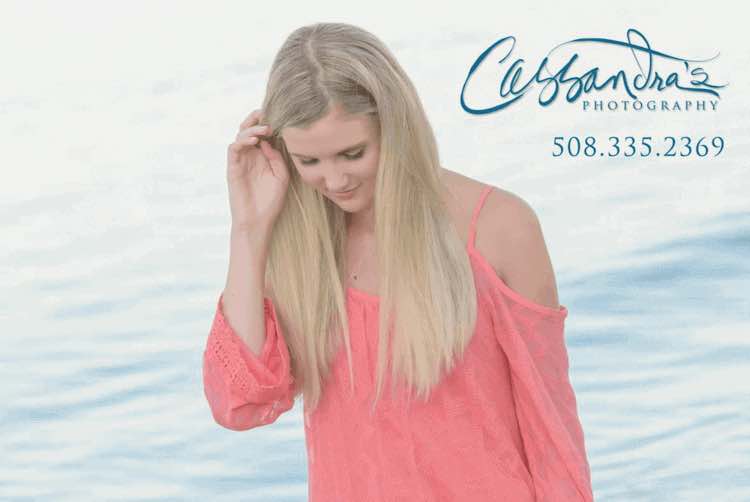Brett Florens is internationally known South African photographer. His work has been published around the globe. Brett has accumulated numerous accolades including the distinction as a Nikon Wedding Photographer. He is one of 12 photographers chosen as the best in their field at the Photokina Exhibition in Germany.
If you are interested in fashion photography classes check our article and for the tips from professional photographers, read on!
What attracted you to photography and how did this journey started?
My introduction to photography wasn’t your conventional start. I was a policeman in South Africa during the Apartheid regime, which meant that all white males, when they finished school would have to go to the army to do national service. So I ended up in the police force and I joined there in 1990, and then in 1992 there was a need for photography unit within the Riot Unit because there was a lot of political violence and politically motivated crimes in the townships that needed photographic documentation, and the foreign photographers were too scared to go into the townships and we were getting danger pay.
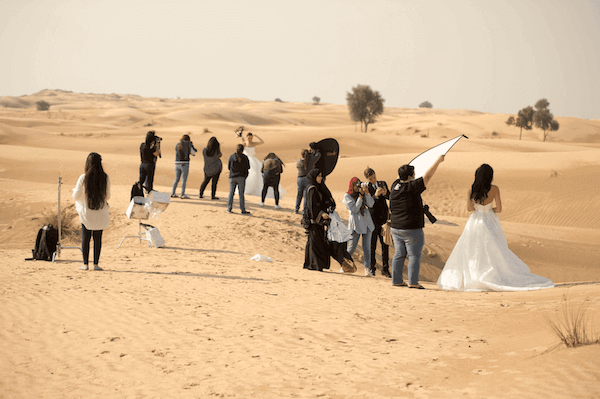
So they decided to start a photographic unit within the Riot Unit and they asked for volunteers and nobody volunteered. And eventually they said: “Look, guys, there are a lot of benefits to this,one of the things is that you get your own car.” I thought that would be really cool, your own police car!
I ended up being the photographer purely by default…
So I volunteered. I had no photographic inclination. I had no creativity. I really didn’t. I wasn’t interested in photography at all, and I ended up being the photographer purely by default. If they had needed a shift today, I would be a shift. If they needed a mechanic today, I’d be a mechanic. I had been a photographer in the Riot Unit just taking pictures of murders and horrific scenes were really you photographing people on the worst day of their lives on. I’d been doing that for about four or five years when one of my colleagues asked me to photograph his wedding, and that’s how I started shooting a lot more happier things and in 1997 I left the police force and opened my own photographic studio.
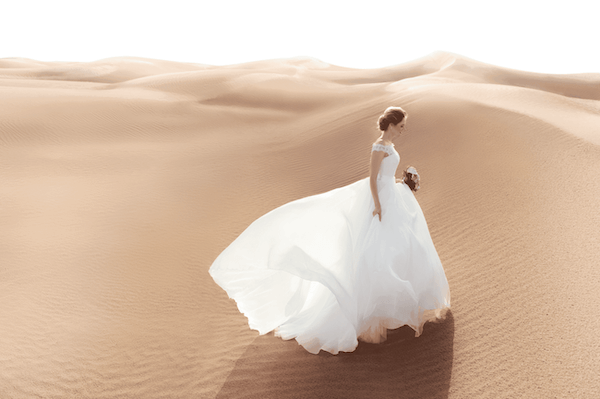
Started to shoot headshots for estate agents, and one of these state agents was married to a woman who was the head of the marketing department and for a surf way brand called Island Style. He asked me if I was interested in photographing clothing catalogs, and I started off shooting clothing catalogs for the surf wear industry.
That snowballed into other things where I started to shoot lingerie. I was shooting for Playtex, Wonderbra and then started shooting for other big brands like Quiksilver and Roxy under, Armour, Puma, Salomon, DC, Fox clothing. A lot of fashion brands that I was doing a lot of clothing catalogs for them, so that’s really hard started. And then my fashion influence started to influence my wedding work, and that attracted me to start to shoot high-end luxury destination wedding, so that’s where I find myself today.
Mostly you are working with people, what is the secret behind getting a good expression or pose from them?
Well, when you need to talk about posing, there are a lot of people who are against posing. I think that posing is definitely advantageous. It’s not posing, that’s bad. It’s bad posing, that’s bad. And I think if you could direct your subject, the person that you’re photographing in a way that makes them feel comfortable then they’re going to look a lot more attractive in the image that you take of them.
Posing is definitely advantageous.
So I think in terms of the posing or the good expressions, just being really warm and inviting and letting people into your space and to your aura is really, really important.
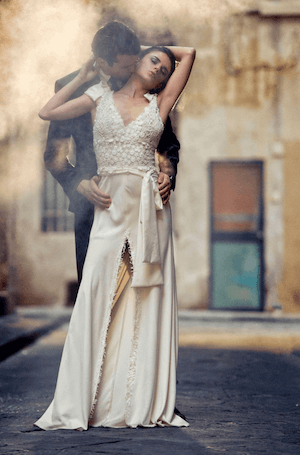
One of the other things that are fundamental when it comes to being able to do that with your client is to know your equipment so well that you’re not thinking about what if stop on my shooting? Is it in focus? What shut to speed am I using? What also am I using? You just know instinctually what you should be on in terms of the camera, and then you can focus and concentrate on their relationship that you’ve got with the person that you’re photographing. So that’s really, really important.
I also think that learning techniques that are not photographic related, like neurolinguistic programming or body language, can really help you as a photographer to get people to warm to you in a very quick way. A lot of the times I’m dealing with people in emotionally vulnerable situations. And I need them to trust me and to believe in me. And I implement certain techniques through body language and the words that I used neural linguistic programming that make people feel comfortable with me.
What projects are you working on right now?
Well, I’ve got so many different things that I’m working on a whole lot of sort of smaller things. Training for me is really rewarding. I feel that when I give back to the photographic community and I can impart some of my knowledge to them, then I’m really influencing somebody’s life in a really positive way. I can make sure that instead of them having a business that is just stagnating or moving along very slowly, I can help them transform that business into a thriving, sustainable, productive career. And that is really, really rewarding for me.
Training for me is really rewarding.
So at the moment I’m working on two or three smaller projects with regards to the training side of things. One of them is a platform called the Focal Lounge, where I’m trying to get other like-minded instructors or photographic educators to join forces so that we’ve got a combined platform to reach a new target market demographic.
If you had to use only one camera and one lens what it would be?
I would say my Nikon D5 and my 70-200mm f/2.8. It’s such a nice versatile lens on the at 2.8 with a wide open aperture you can really put your backgrounds out of focus on, then just the versatility of the 70-200mm is really, really cool.
A lot of people would probably go for the 24-70mm. But for me, everyone else’s work looks the same if you’re shooting. If everyone’s shooting with the same lens, the 50mm or something like that, then you know, I think that everyone’s work tends to look the same, so as a differential I like the compression of the longer lenses.
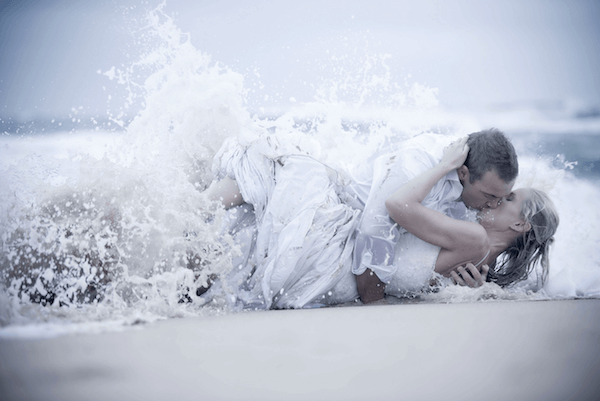
The Nikon D850 is probably also a really good contender. It’s just that the Nikon D5 is nice and fast, so if I did want to shoot subjects that are needed a faster frames per second, right then I would probably go with the D5, but either the D5 or the D850 without a doubt the 70-200mm f/2.8.
What could you advise for the beginners looking for a photographer job?
Well, one of the most important things as a photographer is to understand the business side of things. I know you would probably say you know, go to college or go and get a degree in photography.
The most important thing is the business aspect.
I think getting business skills is a much more important because a lot of creative people struggle with the business side of things and if you can make sure that your business is up to scratch, and you’re really running your business like a business, you’ve got a much better chance of a profitable and sustainable career.
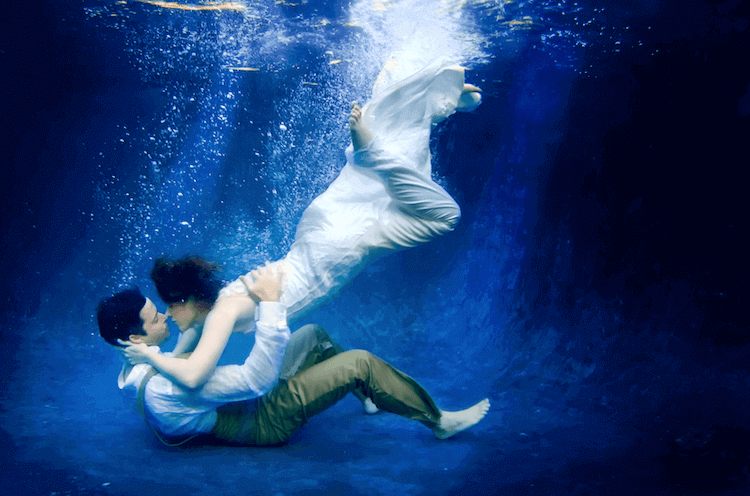
So, study something outside of your area of expertise, so that you’ve got other skills that you can implement into your business. If you call yourself a photographer already, you should know how to take a picture. You should know about composition and exposure and timing and all that. The most important thing is the business aspect.
For Brett’s workshops & mentoring check here.
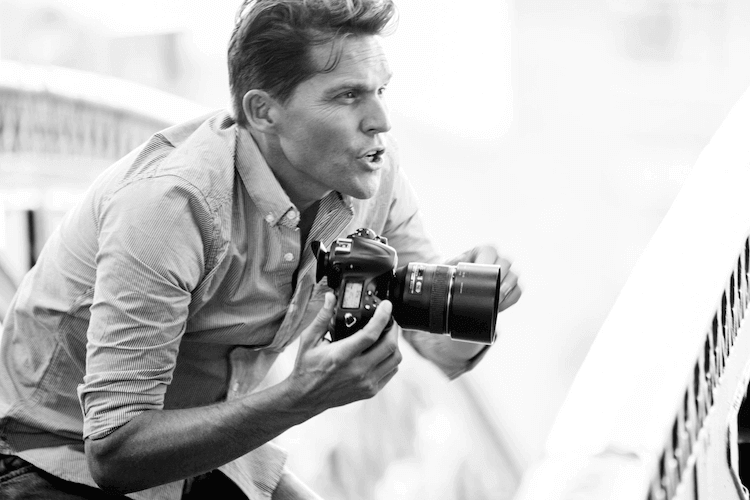
 Fashion & Glamour Photography With Frank Doorhof
Fashion & Glamour Photography With Frank Doorhof